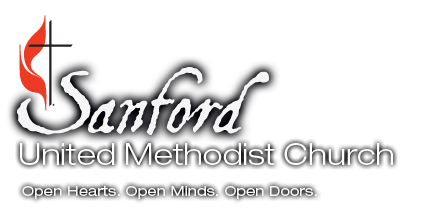“I Pledge Allegiance”
Posted in Pastor Cutting's Blog on 12. Oct, 2011
I Pledge Allegiance
From time to time issues around the pledge of allegiance are in the news. Some Americans do not like to pledge allegiance to what the flag stands for. It is fair to say that some church members are uncomfortable with pledging to support their congregation. Yet, many churches ask for an annual stewardship pledge. Why a pledge campaign? Hoge, Zech, McNamara and Donohoe in Money Matters, tell us that churches that conduct a pledge campaign receive almost twice as much money (1.5% versus 2.9% of income) as a church without a special annual campaign.
A pledge campaign is a proven way to raise the annual budget. During the campaign we are asked to pledge our support for our local congregation. A financial commitment to support this congregation makes a spiritual statement about your trust in the Lord to meet your every need and your willingness to help your local church plan its ministry for the coming year.
God has called us to be good stewards of all that he has given. Giving time and money is an act of stewardship. Generosity in our stewardship is our standard. Believers understand that in giving to the church they are giving back to the Lord a portion of what he has entrusted to them. Our pledge is a way of declaring our trust in the One who provides our every need. We are people who declare in song: “Great is thy faithfulness… morning by morning new mercies I see, All I have needed thy hand hath provided.”
Your pledge is regarded first of all a commitment between you and the Lord, out of that commitment you promise to make certain contributions. We urge you to seek the Lord before making a commitment. The church understands that you may adjust your pledge or promise should your circumstances change. We do not have a collections department. The pledge is not regarded as a binding legal agreement. Those who pledge trust the Lord to provide.
A pledge or a faith promise is about a commitment to give. It is not the same as reaching for our wallet or purse and putting in something when the plate reaches us (that is how we give when we visit another church). When it comes to our home church, we make a prayerful and careful decision ahead of time about our level of support. We follow through on that decision when we faithfully make our regular contributions. I know one man who, at the beginning of the year, wrote out 12 checks for his local church, one for each month. This kind of giving conforms to a plan and honors a promise. It is giving that honors the Lord. It goes far beyond giving some of what we happen to have when the offering is taken.
The practice of making a commitment to give brings discipline and ordered giving to our lives. The pledge campaign helps us to make conscious, intentional, and informed decisions about money, talents, and time. The commitment we make in a pledge campaign saves us from being emotional givers, occasional givers, and impulsive givers. A planned giving campaign gives us the space to reflect on all that the Lord has given, and how we would honor the Lord with our substance. Behind a pledged or promised gift is a conscious decision so carefully made, that we would not break it unless it is warranted by a change in circumstance.
The money that is given to the church in response to the stewardship campaign is used for the purposes intended. Money pledged to the regular budget takes care of daily operational expenses such as utilities, ministries, staff compensation, apportionments, and outreach. The money pledged to the building fund takes care of building related expense.
Every church is better positioned to plan its ministries when there is some sense of how much money would be received in the coming year. The annual stewardship program is an effective way for a church to realize its financial goals. Those who have pledged allegiance to the Lord, count it a joy to freely give. Be the difference: give generously.





